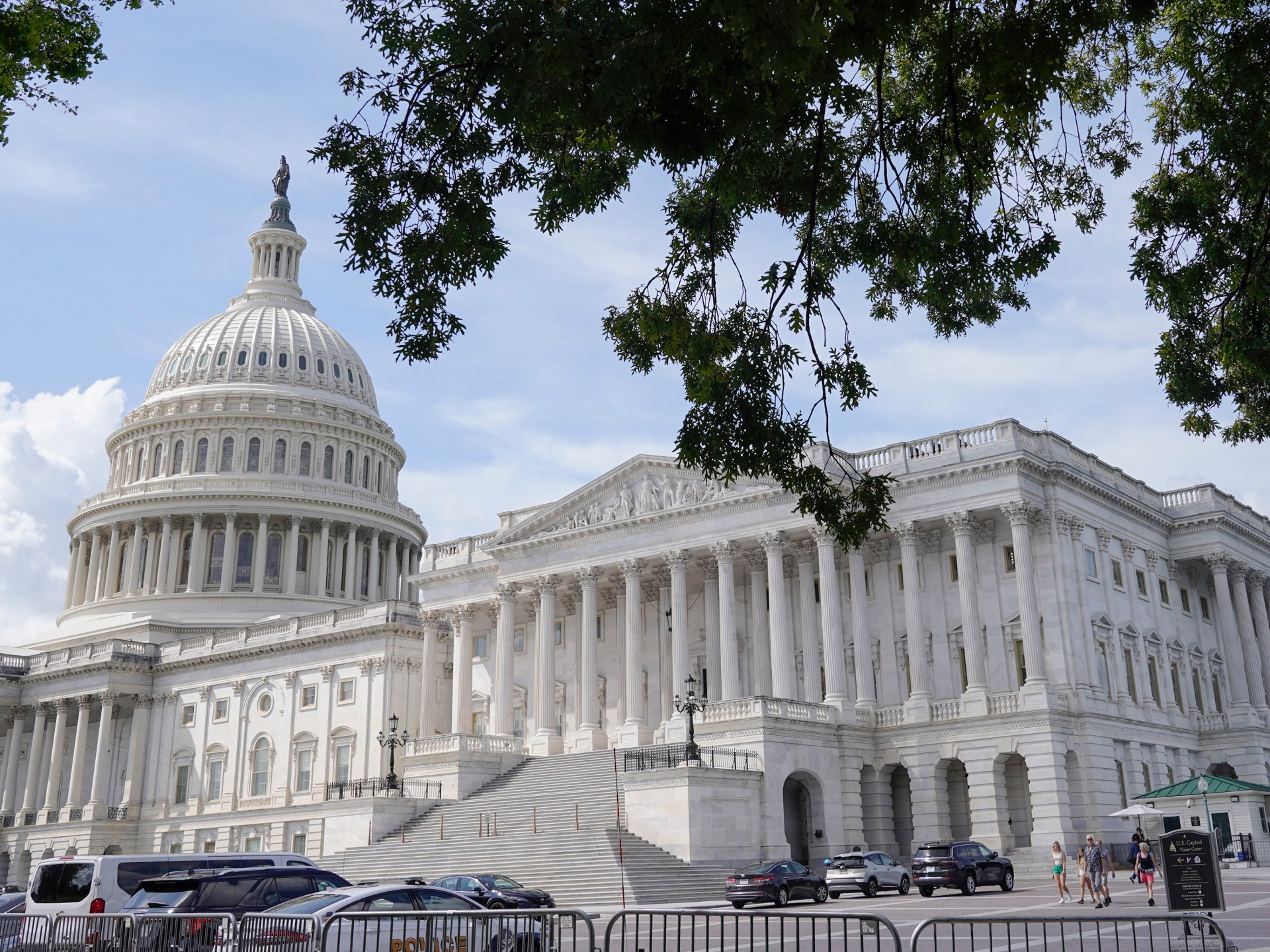Goldman Sachs warns that a US government shutdown is likely to occur in 2023 due to lawmakers' failure to agree on a budget, which could negatively impact stocks and economic growth.
The potential government shutdown threatens to deprive the Federal Reserve of crucial data on the labor market and inflation, which could hinder its ability to make informed decisions about the economy and interest rates.
The White House warns that a government shutdown at the end of the month could have damaging consequences for the economy, national security, and the American public.
The US government faces a potential shutdown if Congress fails to agree on funding past September 30, which would be the first shutdown since December 2018 and could result in a longer standoff between parties.
Millions of federal employees and military personnel face the prospect of a government shutdown, which would result in financial hardships for American families, disruptions in services, and potential harm to the economy.
The federal government is likely to face a shutdown that will affect various services, disrupt workers' pay, and create political turmoil as Republicans demand deep spending cuts.
The impending federal shutdown, combined with other economic challenges such as rising gas prices, student loan payments, and reduced pandemic savings, is expected to strain American households and potentially weaken economic growth in the last quarter of the year.
A potential government shutdown in Washington could have far-reaching consequences, causing financial losses for millions of people, disrupting medical research and food access, delaying regulatory efforts, and hampering the Biden administration's agenda on energy, climate, and infrastructure.
Google searches about the potential government shutdown in the US are increasing, with a particular interest in how it would affect Social Security, veterans' benefits, and the US dollar.
Investors are concerned about the possibility of a US interest rate hike and a government shutdown, which could impact the US credit rating and push the world's top economy into recession.
The federal government is on the verge of a shutdown, with potential consequences for various areas of governance.
A government shutdown could result in 90% of staff at the U.S. Department of Education being furloughed, potentially causing delays for borrowers seeking loan forgiveness and certain changes to their loans.
A government shutdown could have dangerous consequences for the nation's cyber defenses and efforts to combat violent crime, warns Deputy Attorney General Lisa Monaco.
If the federal government shuts down, Social Security checks will still be distributed, but numerous publicly funded agencies will stop work, employees won't be paid, and other federal programs and services will be affected.
The possibility of a government shutdown in the U.S. could have negative implications for the crypto industry's regulatory progress and projects, similar to the effects seen in the previous shutdown in 2018 and 2019, with delays in approvals and a withdrawal of a bitcoin ETF application.
The U.S. is on the verge of a government shutdown as Congress debates spending levels and aid to Ukraine, which could potentially affect government operations and federal workers' paychecks.
The impending government shutdown may have an impact on the financial markets, according to Kristina Hooper, Chief Global Market Strategist at Invesco.
A government shutdown in the U.S. could cause significant disruptions in the stock and bond markets, with the Securities and Exchange Commission being forced to furlough most of its staff and leaving the market oversight at a "skeletal" crew level.
A government shutdown is unlikely to have a negative impact on the stock market, as historical data shows that shutdowns have not affected markets in the past.
A government shutdown would severely impact the U.S. Securities and Exchange Commission's ability to approve IPOs and respond to market turmoil, according to its chair, Gary Gensler.
The possibility of a US government shutdown is causing uncertainty in the market, though investors believe it is unlikely to cause significant damage to stocks; however, the delay in economic reports could impact investor sentiment and contribute to market volatility.
The U.S. government is facing a potential shutdown if Congress does not resolve a deadlock by this weekend, which would result in furloughs or unpaid work for federal workers and military employees, but experts believe the impact on the economy and stock market will be short-lived.
A potential government shutdown in the US may lead to a delay or absence of the September consumer-price index report, which would complicate decisions for financial markets and the Federal Reserve.
US Treasury Secretary Janet Yellen warns that a government shutdown could lead to a recession, with immediate harm and long-term repercussions for the economy.
Rating agency Fitch warns about a possible government shutdown after the ousting of U.S. House Speaker Kevin McCarthy, but states that it would not impact the country's sovereign rating as the governance issues are already factored in.
